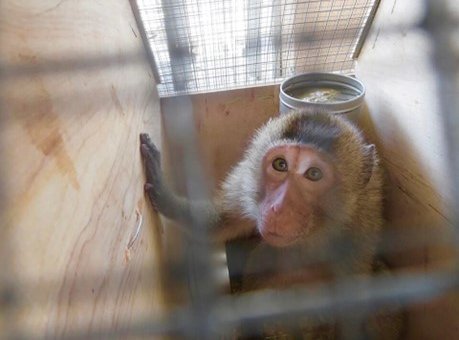Lies and More Lies: Capitol Hill Monkey Hearing Exposes Deceitful Industry
The monkey-importation industry marched one of its foot soldiers into a U.S. House of Representatives subcommittee hearing on Capitol Hill today on a mission to sanitize its bloody business practices and obfuscate the truth. This subterfuge failed.
Paul Pelletier, a lawyer for monkey dealer Worldwide Primates, made stunning revelation after stunning revelation before the House Subcommittee on Oversight and Investigations. The chief among them came when he testified that U.S. experimenters knowingly use monkeys captured in the wild.
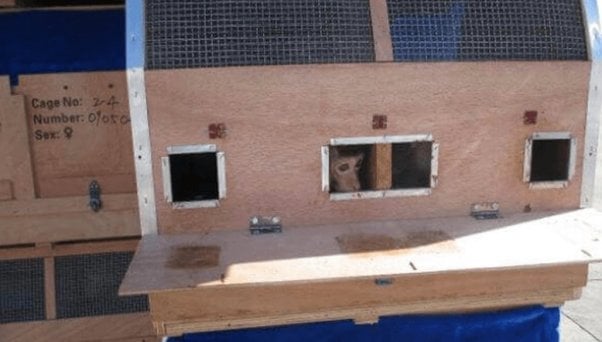
This is undoubtedly true, but the practice is normally kept hush-hush because it’s widely known to compromise, if not entirely negate, research results.
Using monkeys ripped from their forest homes in painful and deadly experiments helps no one but monkey dealers, who stuff their wallets with the money they make from selling their victims. This shady dealing kills monkeys, depletes forests, compromises science, and leaves human patients waiting for much-needed treatments.
In addition, exporting wild-caught monkeys is illegal in most countries.
Gone Wild?
The subcommittee held the hearing, “The Fish and Wildlife Service Gone Wild: Examining Operation Long Tail Liberation,” to suss out whether the agency had stayed within the bounds of its authority and conducted an above-board investigation of a Cambodia-based worldwide monkey-smuggling ring, which culminated in the trial of a key Cambodian government official last year.
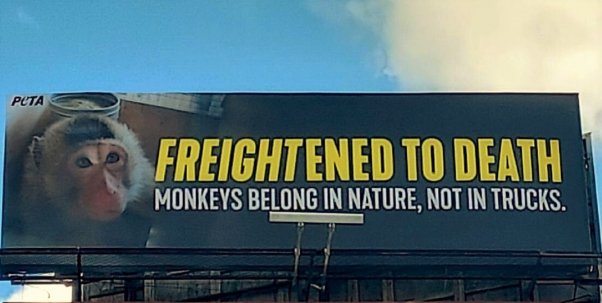
The U.S. Fish & Wildlife Service (FWS) conducted the investigation and has since denied entry to long-tailed macaques from Cambodia into the U.S. This angers importers such as Worldwide Primates, which can’t prove that the monkeys were actually bred on farms—but still wants the cash they could get for selling them.
Worldwide Deceit
Worldwide Primates has a long history of violating state, federal, and international laws passed to protect primates and public health. Following PETA’s formal February 16, 2023, complaint to the U.S. Department of Agriculture (USDA), the monkey importer was cited for violating the federal Animal Welfare Act (AWA) for its role in transporting 167 long-tailed macaques across the country without proper veterinary exams, a move that risked the health of those monkeys and the public at large.
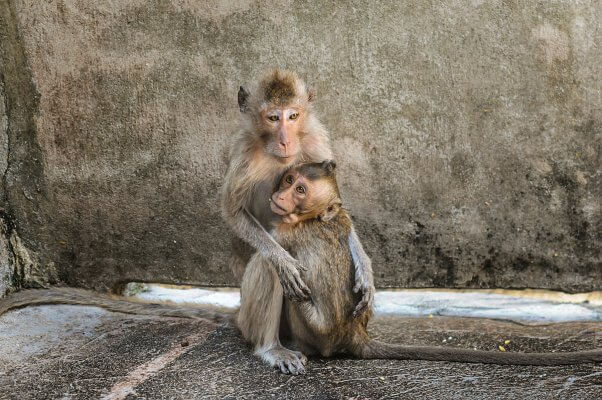
Worldwide Primates is one of two unindicted coconspirators in the November 2022 U.S. Department of Justice (DOJ) indictment of eight Cambodian nationals, including government officials, on charges related to falsifying paperwork to pass off wild-caught macaques as captive-bred.
More Pelletier Explosions
Pelletier also testified that long-tailed macaques aren’t endangered. He lied.
The International Union for Conservation of Nature (IUCN) added the species to its Red List of Threatened Species, placing them among the most endangered species on the planet. The IUCN cited the animal experimentation industry as one of the chief reasons behind the worldwide depletion of long-tailed macaques.
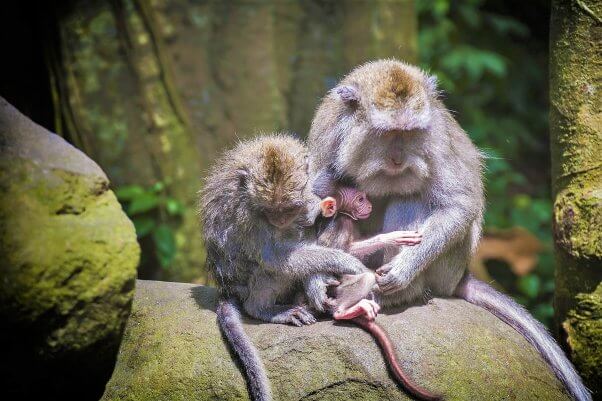
Nearly 17 months ago, primate scientists from around the world, including Dr. Jane Goodall, petitioned the FWS to begin the process of adding long-tailed macaques to the Endangered Species Act and, as Pelletier stated in his testimony, this will ultimately protect these monkeys from further exploitation.
More Lies
Pelletier’s suicide mission wasn’t finished. He claimed that the FWS had given PETA a copy of the DOJ indictment and undercover video before they were released—another lie.
PETA received the video through a plain-vanilla open records request and first saw the indictment on the DOJ website after it was released by the agency.
Trump Administration Ordered the Investigation
While Pelletier and other witnesses were critical of the FWS investigation, agency Director Martha Williams testified that it was undertaken because of an executive order from the Trump administration. It “directed federal agencies to strengthen enforcement of federal law” and protect “public safety and national security through the ‘illegal smuggling and trafficking of humans, drugs, or other substances, wildlife, and weapons.’”
The investigation is ongoing, Williams testified.
Playing With Fire
Emory University researcher Tom Gillespie, who has studied emerging zoonotic disease risk for two decades, testified that “macaques are excellent reservoirs for pathogens that can infect us and potentially lead to disease outbreaks” and that “macaques show the highest average volume of potential zoonotic diseases of all wildlife traded.” These pathogens can alter the animals’ immune systems, which likely compromises research results.
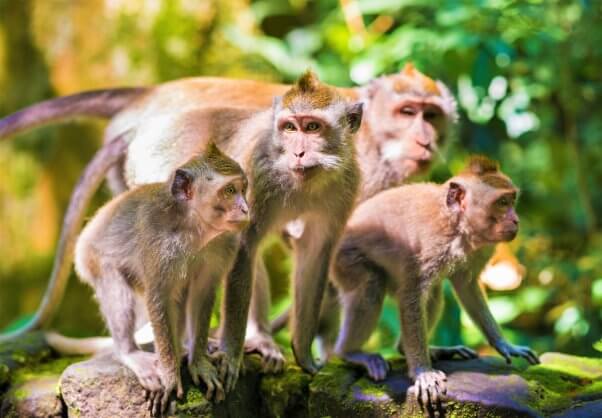
Documents obtained by PETA revealed that since 2021, at least six cases of Burkholderia pseudomallei—a bacteria so deadly that it’s classified as a bioterrorism agent—were found in macaques imported from Cambodia. Four of the monkeys were released from quarantine while still infected. B. pseudomallei, which causes deadly melioidosis, can be shed in monkey feces, urine, saliva, and blood, contaminating the environment and persisting for years.
Stacking the Deck
The hearing’s witness list reads like a who’s who of apologists for the bloody monkey-importation and experimentation industry.
Donna Clemons
- She was the global chief scientific officer for monkey experimenter and importer Covance Laboratories in 2005, when PETA’s undercover video investigation revealed that workers at its Virginia facility were hitting monkeys and throwing them against cage doors. Sick and injured monkeys were denied veterinary care, and monkeys circled frantically in their cages, pulled out their hair, and chewed their own flesh. As a result of the investigation, the USDA cited and fined Covance for multiple violations of the AWA.
- Clemons later served on the board of directors of the National Association of Biomedical Research (NABR), an organization paid to promote and defend experiments on animals.
Chris Abee
- He spent his career experimenting on primates.
- As director of the Michale E. Keeling Center for Comparative Medicine and Research at the MD Anderson Cancer Center, he opposed retiring the 151 chimpanzees held at the facility to sanctuaries after the National Institutes of Health ended experimentation on the species. He argued that the government should pay the Keeling Center to house them.
- Over the past several years, he has partnered with the NABR to advocate for keeping the monkey pipeline open, despite evidence of trafficking.
What You Can Do
More than 1,000 long-tailed macaques allegedly illegally brought to the U.S. from Cambodia are still in legal limbo at Charles River Laboratories. Urge the secretary of the interior to send these monkeys to sanctuaries:

